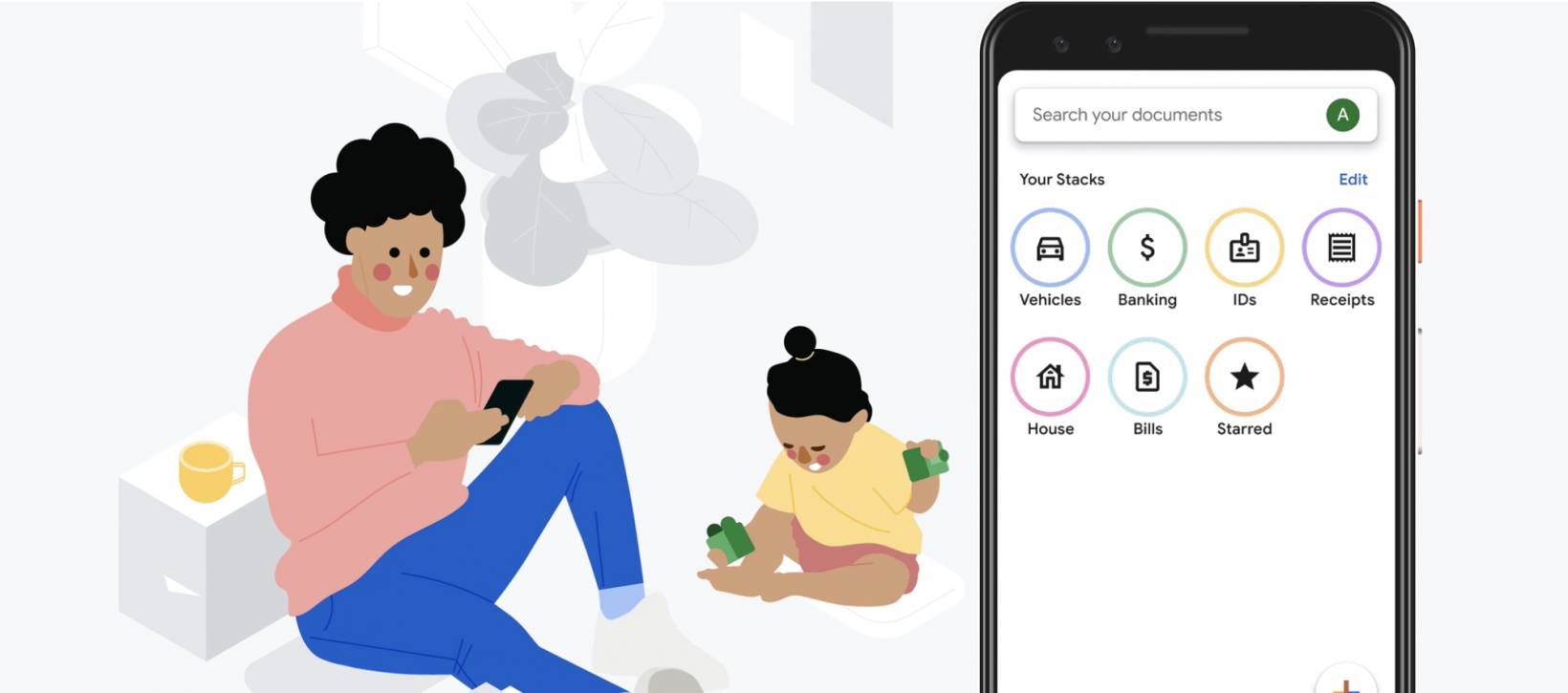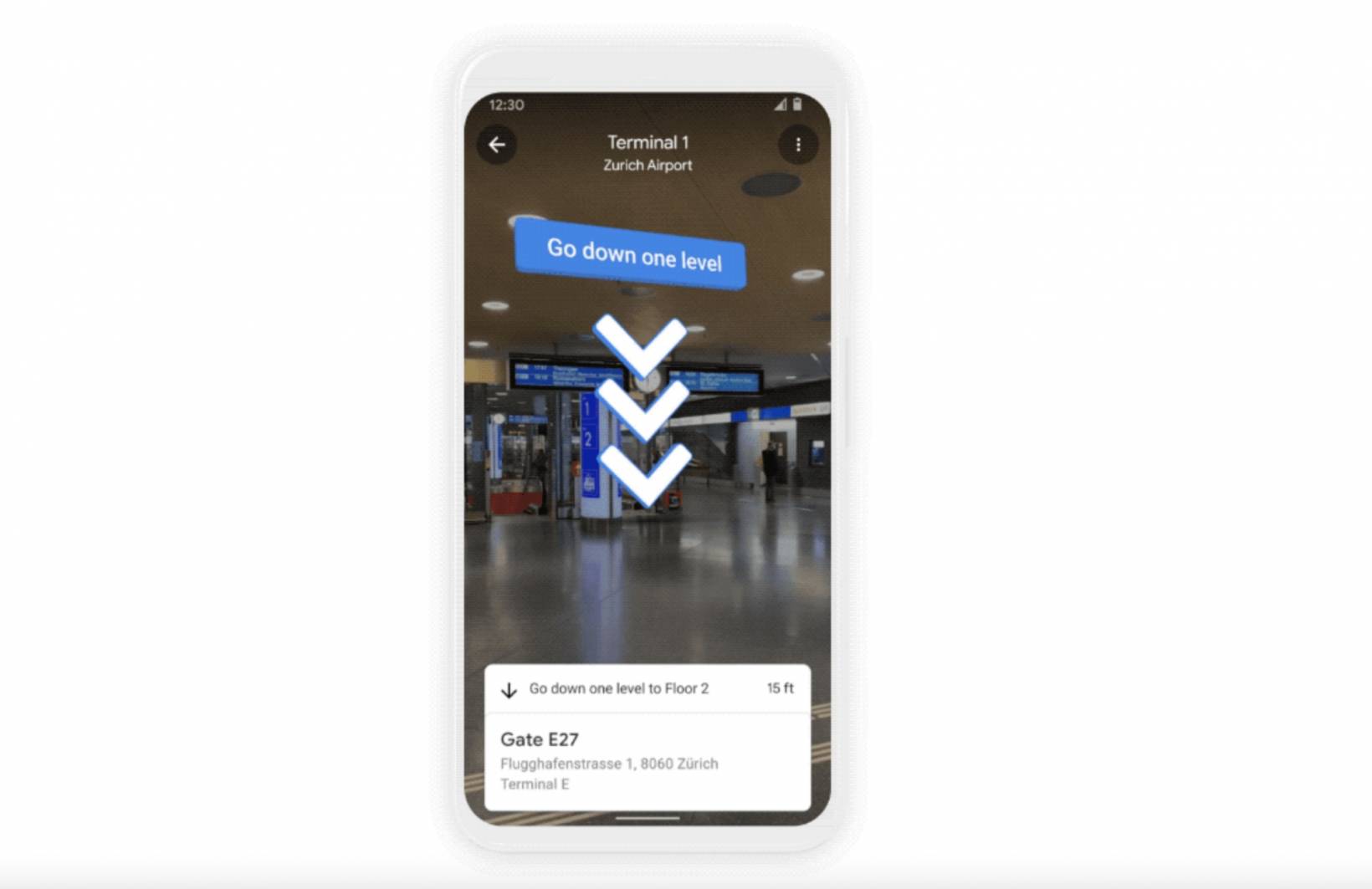Ring Video Doorbell Pro 2 review - An extra-dimensional sense of well-being - Android
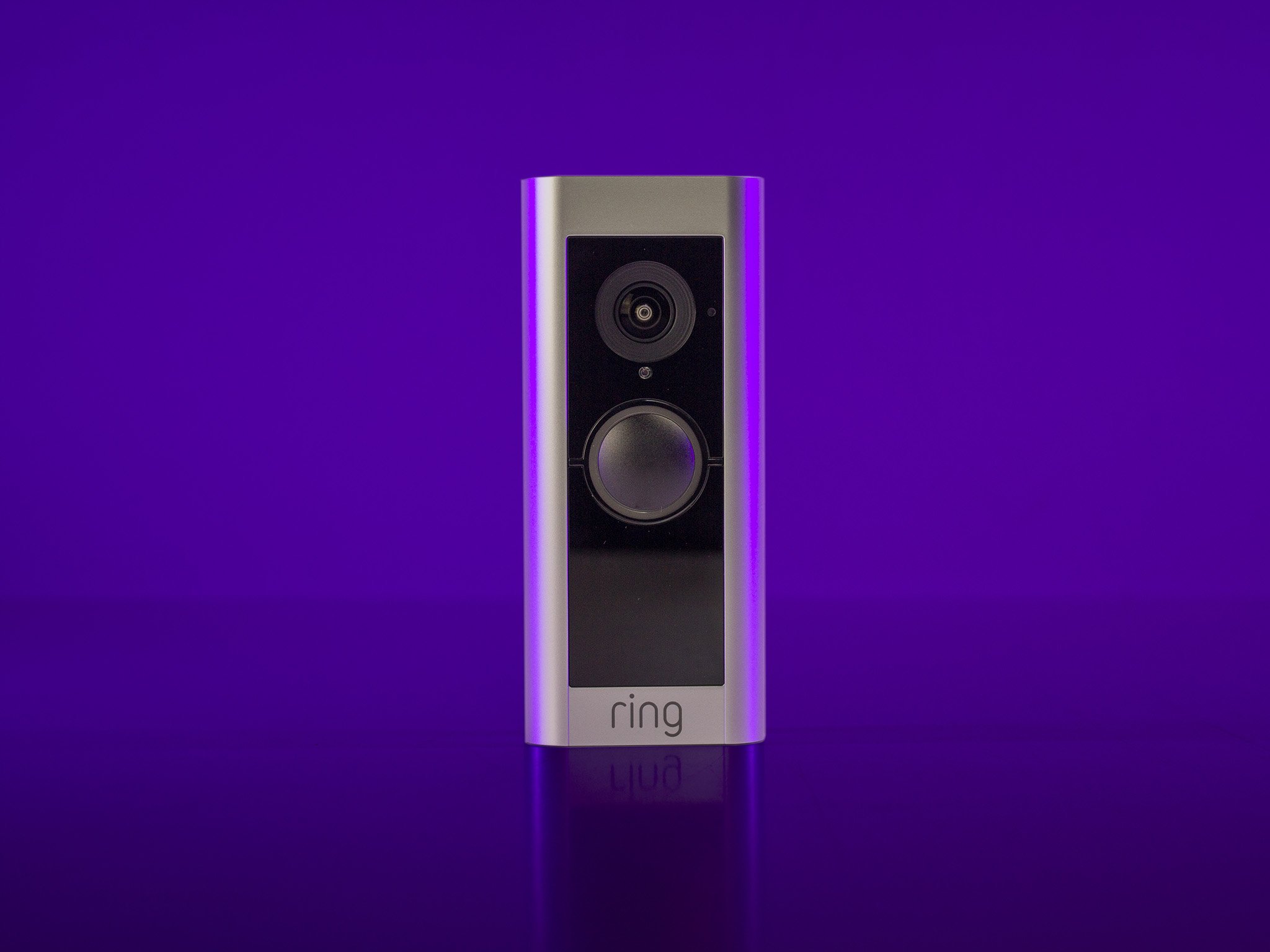
Seeing the exact path to a more secure home.
When people think of video doorbells, they probably think of Ring first. There's a good reason for that. Ring's name has become synonymous because of its pivotal contributions to the home security industry — including some of the best smart doorbells — and for the lessons in privacy we've learned from the company's missteps over the years. Ring Doorbell Pro 2 is the culmination of Ring's impressive motion detection technology research and introduces a brand new concept to video doorbells: 3D motion detection.
3D Motion detection enables the video doorbell to see motion and understand where that motion is happening in viewable space. Ring Doorbell Pro 2 is the debut Ring product with this feature, swapping out the passive infrared sensor that Ring has used for years with a brand new radar sensor. In conjunction with the brand new, higher-resolution camera, this new sensor creates the most accurate view of motion you'll get from any video doorbell on the market.
Despite many advanced sensors and features, Ring Doorbell Pro 2 remains one of the very smallest video doorbells on the market; in fact, it's roughly half the size of some of its competitors. You'll need hardwired power, so it'll probably cut out some renters from owning it. It's also definitely best when paired with a Ring Protect Plan as you'll get access to advanced motion zones options and be able to see 60 days of recorded history. That last part is particularly important with Ring Video Doorbell Pro 2 since it can record at all times.
Ring Video Doorbell Pro 2 review:
- Price and availability
- What you'll like
- What you won't like
- The competition
- Should you buy?
Ring Video Doorbell Pro 2
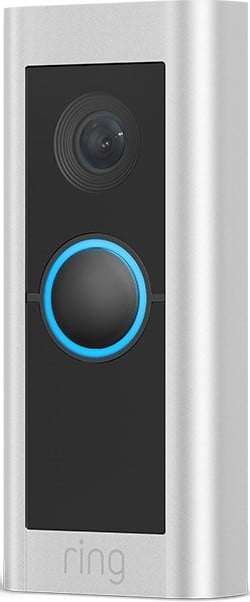
Bottom line: Ring Video Doorbell Pro 2 flips the script on the trend of AI-powered object detection by using built-in radar sensors to tell you exactly where motion took place in your yard, complete with a birds-eye view of the situation. You'll need hardwired power for it, and a Ring Protect plan is required for video storage and most advanced features, but the diminutive size and integration with Alexa-based smart homes make this an absolute winner.
The Good
- Ultra-accurate location-based detection
- Bird's-eye view can be handy
- Super small design
- Always-on recording with easily-viewable history
- Alexa-powered auto-replies
- New aspect ratio is more useful
The Bad
- Doesn't integrate well with Google services
- Requires hardwired power
- Expensive
- Ring Protect Plan needed for most features
$250 at Amazon $250 at Best Buy $250 at The Home Depot
Ring Video Doorbell Pro 2: Price and availability
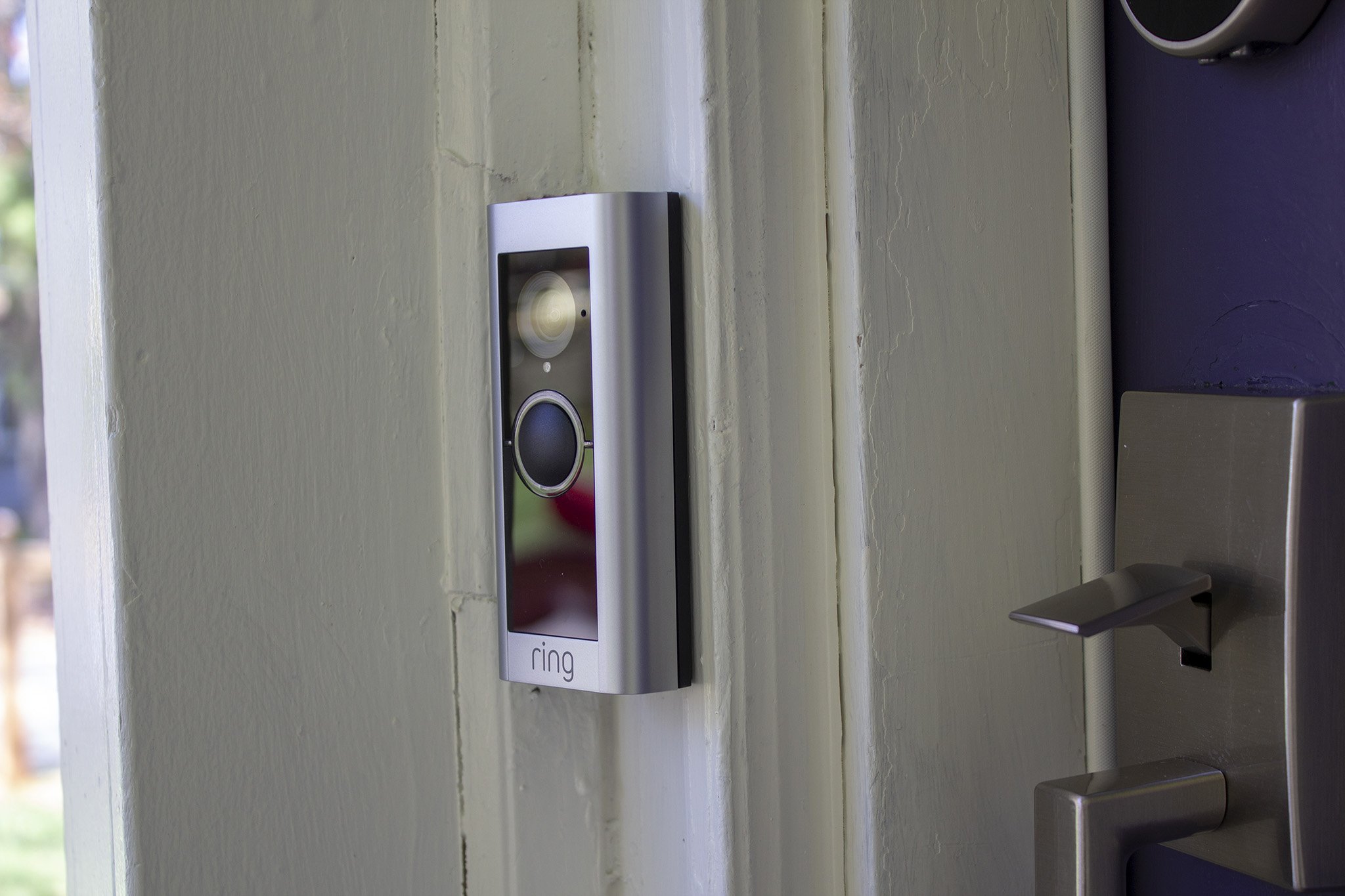
Ring Video Doorbell Pro 2 is available as of March 31, 2021, at the usual major retailers that stock Ring products. As an Amazon company, Ring always sells its products on its website and Amazon.com. Home Depot and Best Buy are typically the best retailers to find the product if you want to pick it up right now, and the $249.99 price is the same no matter where you buy it.
Ring also sells a $289.99 package with the Ring Video Doorbell Pro 2 and a Ring Chime Pro if your house is like mine and doesn't have a traditional doorbell chime in it, or if you just need to add another chime for other places in your home.
Ring Video Doorbell Pro 2 ships with a satin nickel faceplate but customers can claim one free additional faceplate color after purchasing the doorbell. A coupon is included in the app after you pair it with your Ring account and Ring offers several different color options.
Ring Video Doorbell Pro 2: You'll love what it sees
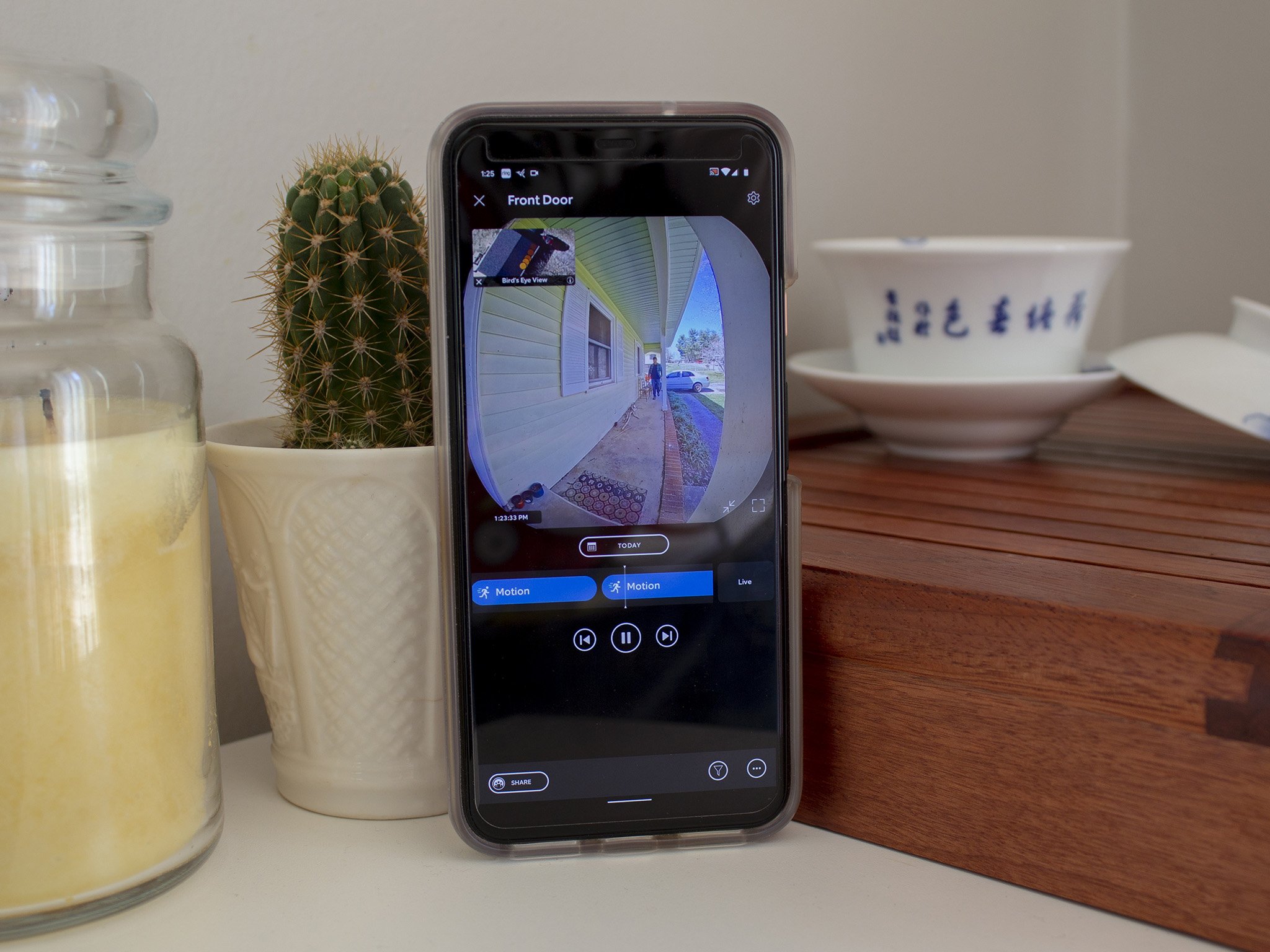
From the moment you unpack the impossibly small box that Ring Video Doorbell Pro 2 comes in to the time when you hang its tiny form-factor next to your door, you're going to love this video doorbell.
While the Ring Video Doorbell Pro 2 has plenty under the hood to differentiate itself from the first-generation model, the biggest change is how it sees the world. That change is both in the camera itself — which is both higher-resolution and uses a different aspect ratio — and the way it detects motion. Gone is the passive infrared sensor that detected heat and, in its place, is a new radar sensor that can actually detect movement up to 30ft away with near-pinpoint accuracy.
This kind of motion detection is particularly important if you live on a busy street — either foot or car traffic — or have a property with lots of trees or shrubbery that might block the otherwise perfect view your video doorbell has of your home's path of entry. When you set the Ring Video Doorbell Pro 2 up, you'll be presented with an overhead satellite view of your property, which is provided by MapBox. You'll place a pin at the approximate location of your front door, then rotate the view to line up with what your Ring Video Doorbell Pro 2 sees.
When a cat came strolling around the porch at 2 am, I knew exactly where it went, just in case it left me any presents to clean up later.
This calibration helps Ring understand where motion is located on said satellite image. You can configure movement alerts to take place anywhere in a 30ft radius of the doorbell, helping to avoid traffic or other visual noise that might cause false notifications. The motion detection from the radar — dubbed 3D motion detection by Ring — was stunningly accurate. That, complete with the birds-eye view that's created in a picture-in-picture-style over the live video gives you a glanceable view of which way movement originated and where it ended.
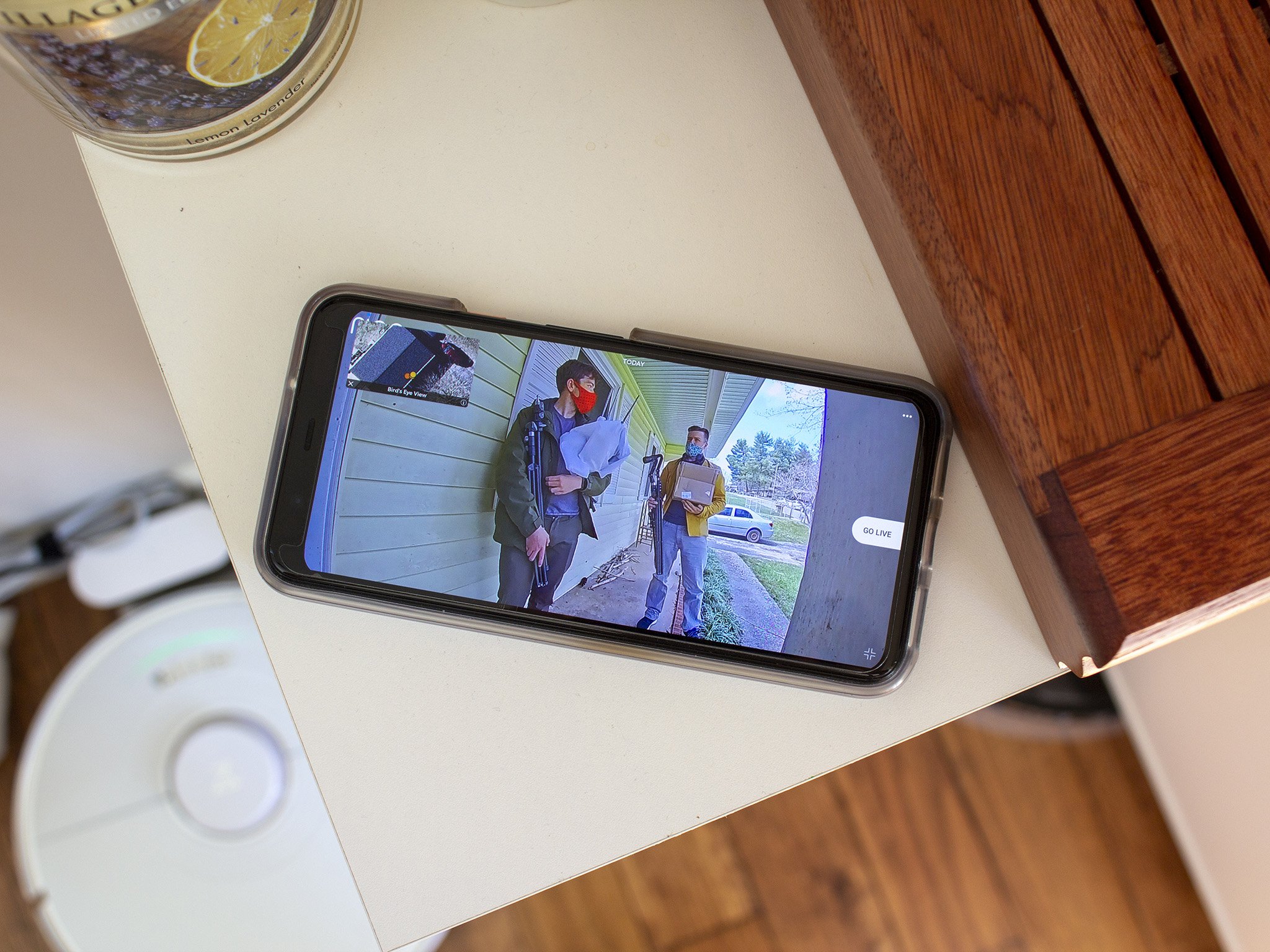 Mr. Mobile and David Imel pay a visit.
Mr. Mobile and David Imel pay a visit.
I loved seeing the motion history while scrubbing through the motion timeline on the Ring app, as it's perfectly laid out in a way that's easy to understand exactly where motion was detected. When a cat came strolling around the porch at 2 am, I knew exactly where it went, just in case it left me any presents to clean up later.
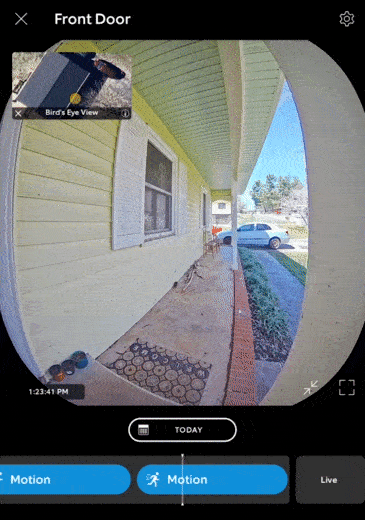
With a Ring Protect Plan, you'll have access to a brilliantly-designed timeline of all events that your Ring Video Doorbell Pro 2 recorded, as well as snapshots taken between each of these events. Snapshots can be taken on a configurable interval, helping you get some better context to motion events.
Video quality has been bumped up to 1536p which, just as the numbers suggest, is a 50% bump in resolution. That gives you better zoom detail than previous Ring efforts and, to make things even better, it's now displayed in a more helpful square aspect ratio that Ring calls "Head to Toe video." That makes it easier to see packages on the doorstep and, once again, get a better contextual view of what's going on in front of your home. Night vision, too, is stellar and even better on my porch than the Arlo Video Doorbell, with brighter shadows and fewer blown-out highlights from the infrared light shining off the white wall.
Alexa Greetings and Quick Replies are two new features in the Ring repertoire, and I couldn't love them any more if I tried. Some doorbells, like the Arlo Video Doorbell, give users the ability to select from a list of pre-canned responses, which, when selected, will be read to the person at your door via an automated voice. Ring Video Doorbell Pro 2 has the same kind of feature, called Quick Responses, but takes that concept a step further by connecting your visitors directly with Alexa.
This doorbell can answer itself, thanks to Alexa. That's something I never considered would even be possible.
That connection to Alexa allows your doorbell to answer itself. Unlike the radar-driven motion detection, this feature requires a Ring Protect subscription but may honestly be the most compelling reason that Ring has ever devised to subscribe. Once you enable the option, Alexa will answer any button presses, and visitors can chat with Alexa exactly as you might imagine.
Whether it's leaving a message for you to listen to later, get instructions for where to deliver packages or something else entirely, it's pretty comforting knowing that someone at the door isn't just standing there wondering if someone is home or not. The new microphone array makes it possible to actually understand what the person on the other end is saying, and video end-to-end encryption and 2-factor authentication support mean you won't have to worry about someone else intercepting your videos or messages.
Ring Video Doorbell Pro 2: It's hard to like subscriptions
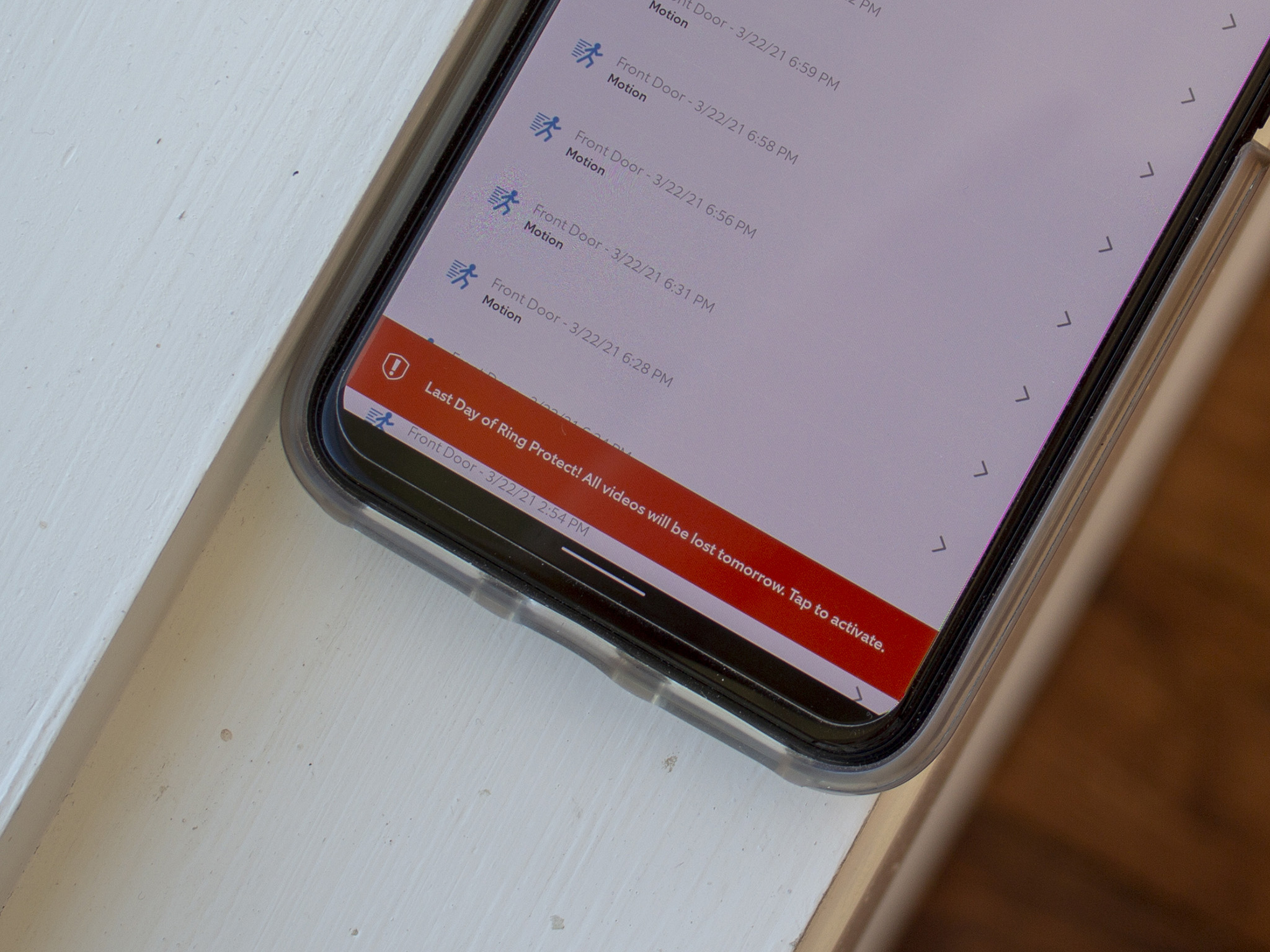
While Ring Video Doorbell Pro 2 isn't useless without a subscription, it's going to deliver a severely limited set of functionality that would be better served by a cheaper doorbell. That is, of course, unless you really need that 3D motion detection. Ring, thankfully, kept this as part of the doorbell's basic functionality, as all live views — including both answering button presses and just manually viewing live video — will display the bird 's-eye view map complete with the detected motion path.
If you're not willing to pay $3 a month for a subscription, you should just buy a less expensive video doorbell.
There's no way to locally store video, though, so you'll be limited to live views only if you don't have a Ring Protect plan. These plans are only $3 per month for a single doorbell, though, so we're not talking about an exorbitant amount of money. To Ring's point (or, I assume, of course): if you have $250 to spend on a video doorbell, you can probably afford $3 a month for cloud storage and all of the features you're paying $250 for. Otherwise, you'd probably just buy something less expensive.
Taking subscriptions off the list of complaints, though, there are two things I'd love to see added in the future. First is package and animal detection. They're some of my favorite things about Arlo and Google's video doorbells and really do make a difference when knowing whether or not I should even bother looking at a motion notification. You can at least set your Ring Video Doorbell Pro 2 to people-only mode, keeping other types of movement out of your notifications, but I still prefer more granular options when I can get them.
Second, I'd love a way to run this thing on battery power. Many of Ring's other video doorbells have the option to run on a battery or be hardwired, and I'd love to be able to easily hook Ring Video Doorbell Pro 2 up to a battery and, at the least, have it run in a reduced-capacity if the power were to go out. I guess the lack of local storage and server-side processing would make it kind of useless, but I suppose those would have to be part of the package if this were an option.
Ring Video Doorbell Pro 2: Competition
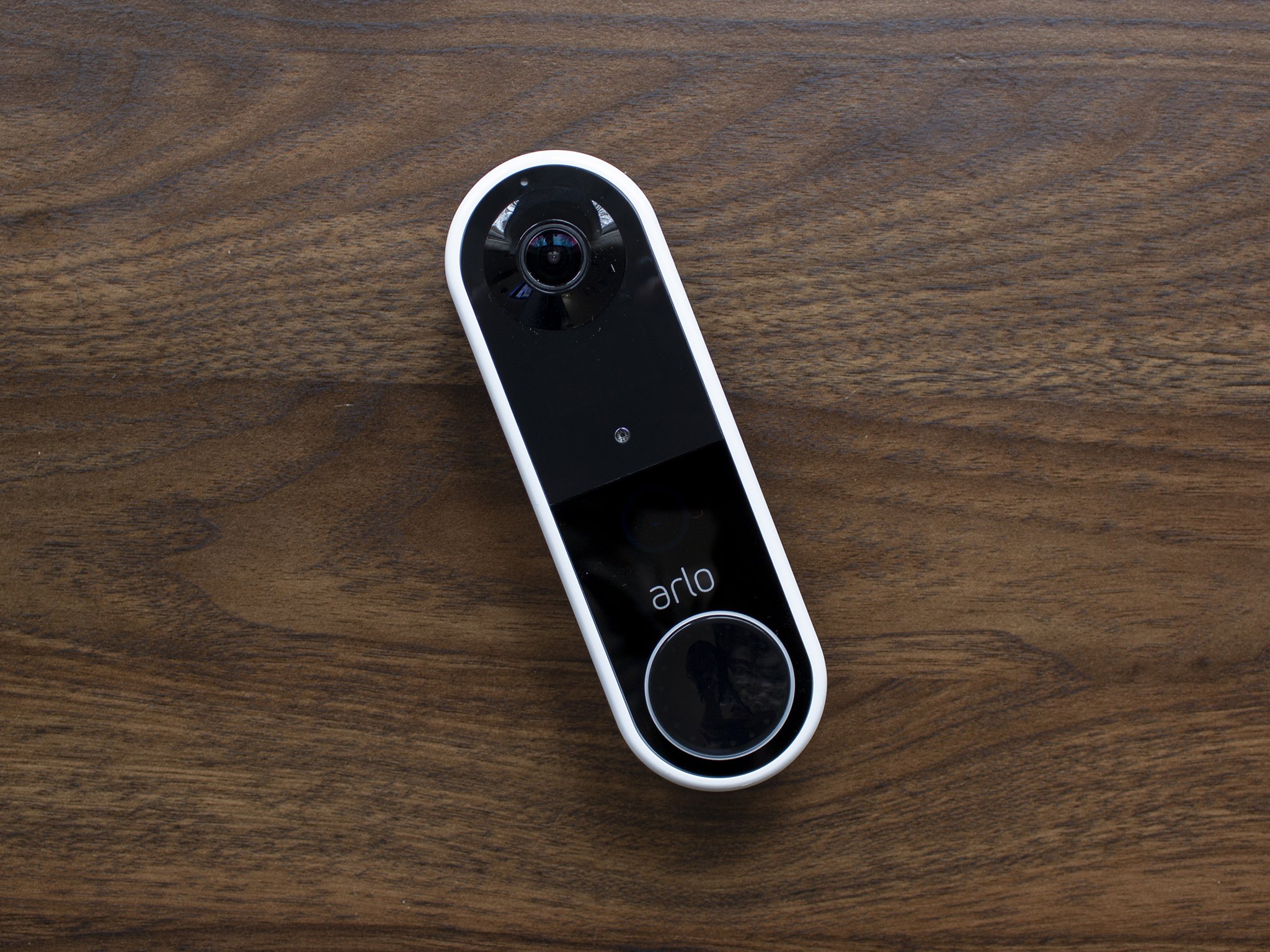
Ring's products work best in an Alexa or Ring-powered smart home, but if your preference is a Google-powered smart home, you might want to pick Arlo Video Doorbells instead. Just as Ring's products integrate perfectly into the Amazon Alexa ecosystem, Arlo's works deeply with the Google ecosystem — and, actually, very well with Alexa, too. On top of this, the Arlo Video Doorbell comes in a wired and wire-free version and even offers more granular object-based motion detection like animals and packages. You'll still need an Arlo Smart subscription to get all the features, though, so that part isn't any better than what Ring offers.
If local storage is your thing, the best smart video doorbell that stores locally is, undoubtedly, the Eufy Video Doorbell. As is the case with basically all Eufy Security products, Eufy Video Doorbell keeps as many things local as possible. Instead of cloud-based AI processing, Eufy's onboard processors can differentiate between regular motion and a person. Similarly, all of your data can be stored locally for greater control of your data. Eufy also offers cloud storage plans if you like, but there are no features hidden behind a paywall which, to me, is a particularly excellent value that many people should consider.
If you're already entrenched in the Ring or Alexa ecosystems and just want to expand or upgrade your current video doorbell and want to save a few bucks, Ring Video Doorbell Wired is the company's smallest and least expensive video doorbell ever, retailing for only $60. It's still got people-only detection and cloud storage when you subscribe to a Ring Protect Plan, and it's even got the great always-on recording that'll give you a 6-second lead-up to motion events to understand the context better. If you don't need crazy advanced motion detection or the ability to answer itself, this is a fantastic choice.
Ring Video Doorbell Pro 2: Should you buy it?
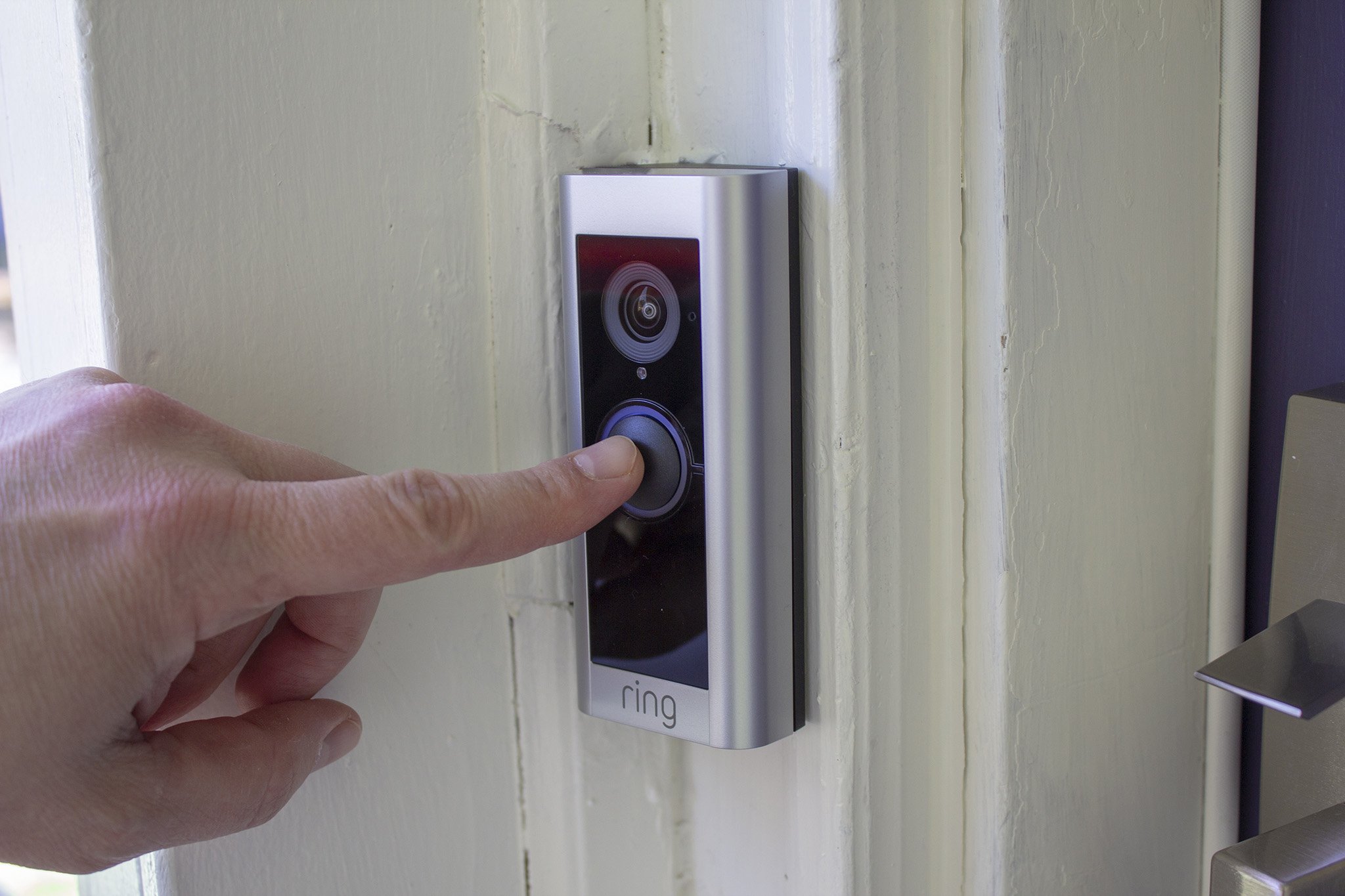
You should buy this if ...
- You want the most accurate motion detection of any video doorbell.
- You're already running a Ring or Alexa-powered smart home.
- You want a doorbell that can answer itself.
You shouldn't buy this if...
- You're deeply invested in a Google-powered home.
- You want to store videos locally.
- You don't want to pay for a subscription to get all the features.
Ring Video Doorbell Pro 2 doesn't do much to change the fact that Ring's products don't play well with Google-powered smart homes but, realistically, there are a lot more Alexa-powered homes out there anyway. There's also no denying that paying for a monthly subscription (on top of all your other subscriptions these days) isn't fun, but at least it's darn cheap. If those things don't bother you, you're in for a real treat of a product, as Ring's expertise in the video doorbell realm shines through with a truly excellent product that detects motion like none other.
Ring Video Doorbell Pro 2 creates the most realistic view of what you'd see if you were the one standing at your own front door by not just providing a pretty moving picture but also giving you an understanding of the depth of the scene. Without this sense of depth, it would be almost as if someone were trying to paint a realistic picture without adding any shadows to the scene. Sure, the characters and scenery are all there, and the colors are great, but without that sense of depth, it's hard to understand what's truly going on.
The improvements made here are not just to the motion detection, though. That really would be short-selling the product. You'd be remiss for ignoring the optics improvements alone, which don't just deliver better zoom abilities or a proper view of your whole porch — thanks to the head-to-toe aspect ratio — but the ability to answer itself is truly a stunning feature. Having Alexa act as your personal butler feels nothing short of futuristic, and the ability to answer back with quick, contextual replies at the tap of a button (and without your own voice) is more than just handy; it feels like a necessity going forward for top-tier video doorbells.
Ring Video Doorbell Pro 2

Bottom line: If you've got an Alexa house or already have Ring devices, there's no better choice than Ring Video Doorbell Pro 2. Deep integration into the Amazon ecosystem and world-class 3D motion detection are hallmarks of this small but mighty crown of Ring's video doorbells.
$250 at Amazon $250 at Best Buy $250 at The Home Depot
31/03/2021 02:57 PM
Area 120 app Stack will make sense of your scanned docs
31/03/2021 04:00 PM
Add your kids profile to Chromecast with Google TV with these quick steps!
31/03/2021 06:00 PM
Biden's EPA dismisses dozens of Trump-appointed science advisors
31/03/2021 06:31 PM
A New Google Nest Hello Doorbell May Be In The Works
31/03/2021 11:25 PM
Galaxy S20 FE Is Now Picking Up The April Security Update
31/03/2021 01:34 PM
Google's Easter Egg Celebrates 'Ever Given' Dislodging From The Suez Canal
31/03/2021 12:42 PM
Google Maps shares AI-powered features to help you navigate better
31/03/2021 06:35 AM
This Google Assistant-powered Fiat 500 is basically a Pixel Car
31/03/2021 02:05 PM
- Comics
- HEALTH
- Libraries & Demo
- Sports Games
- Racing
- Cards & Casino
- Media & Video
- Photography
- Transportation
- Arcade & Action
- Brain & Puzzle
- Social
- Communication
- Casual
- Personalization
- Tools
- Medical
- Weather
- Shopping
- Health & Fitness
- Productivity
- Books & Reference
- Finance
- Entertainment
- Business
- Sports
- Music & Audio
- News & Magazines
- Education
- Lifestyle
- Travel & Local
